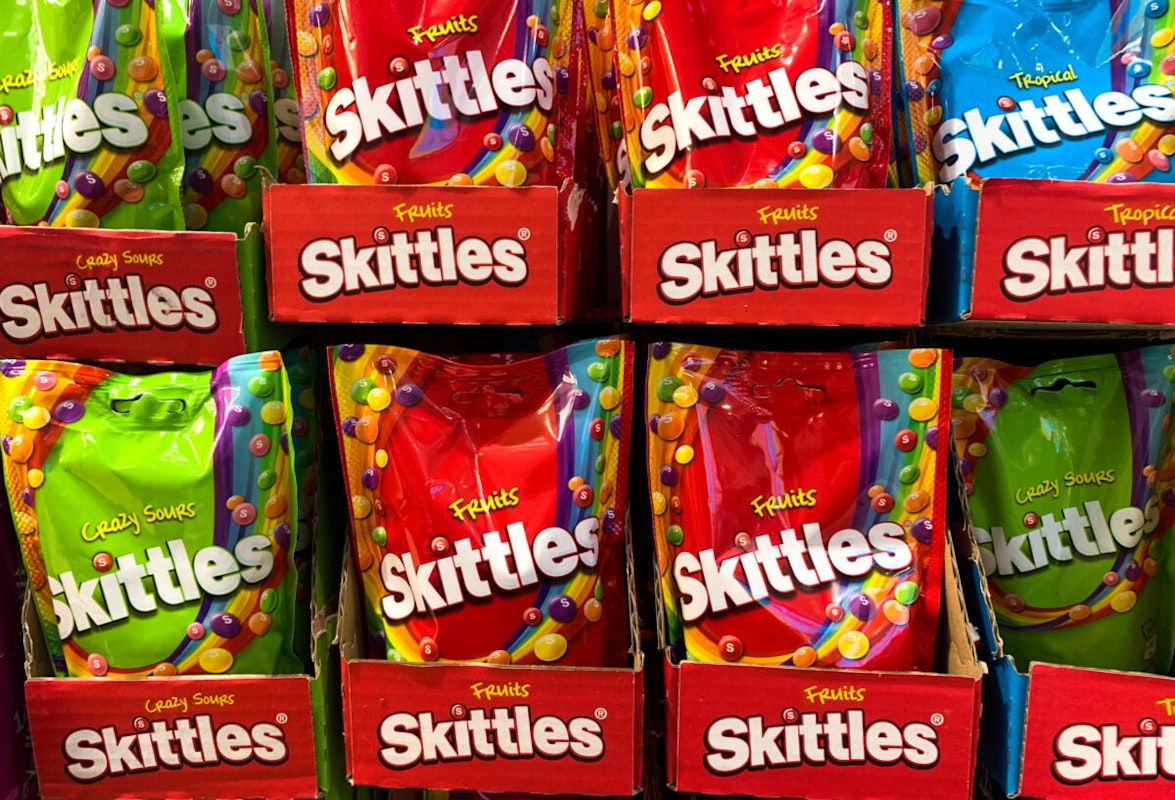Sunday, August 27, 2023
The Daily Messenger: The ugly souls behind this nation's downfall
Monday, August 21, 2023
The Daily Messenger: This 2023 Berlin Fashion Show Was All About Mockin...
Nicaragua to allow Russian military bases with cruise missiles on their soil?!
Wednesday, August 16, 2023
Manufactured Climate Consensus Deemed False By Climate Scientist – ‘The Time For Debate Has Ended’
Manufactured Climate Consensus Deemed False By Climate Scientist – ‘The Time For Debate Has Ended’
Lilli Keeve, OPlaneta
There has been an «overwhelming scientific consensus» that global warming is being caused by humans, a statement supported by fact-check articles.
However, many climate scientists have challenged this slogan in the past few years.
One of these scientists is renowned 2022 Nobel Prize winner and physicist Dr. John Clauser. Recently, he stated that there is no man-made global warming crisis. John Coleman, a fellow scientist and Weather Channel founder, agreed with his belief that «there is no significant man-made global warming.»
Georgia Institute of Technology’s Judith Curry, an American climatologist, affirms that the man-made climate crisis is «manufactured.» Her research on hurricanes, remote sensing, atmospheric modeling, climate models, and more has spanned decades and has been published in over one hundred scientific papers.
According to Curry, there’s been an «overwhelming consensus» over this untrue slogan which scientists have pursued «fame and fortune» over. The scientists who research global warming created by humans are more likely to be acknowledged and quoted by popular culture. They are also more likely to be akin to celebrities and given large grants from the federal government.
As a result, «climate hysteria» was born and adopted by the public, but Curry isn’t buying it. She shared: “I was adopted by the environmental advocacy groups and the alarmists and I was treated like a rock star. Flown all over the place to meet with politicians. Like a good scientist, I investigated.”
She said that «ugly things» have been performed by alarmist scientists to further their narrative about global warming, which is all politically driven. Take, for example, the notorious «Climategate scandal.» It revealed that certain scientists weren’t sharing data and privately admitting in exposed emails that the planet isn’t in a climate crisis.
«Avoiding Freedom of Information Act requests» was one of these «ugly things.» She also says that there is a «climate change industry» that champions alarmism.
U.N. officials, according to Curry, were motivated by «anti-capitalism. They hated the oil companies and seized on the climate change issue to move their policies along.» She continued: “The IPCC (the Intergovernmental Panel on Climate Change was created by the U.N.) wasn’t supposed to focus on any benefits of warming. The IPCC’s mandate was to look for dangerous human-caused climate change.”
Curry’s thoughts don’t stop there. “Then the national funding agencies directed all the funding … assuming there are dangerous impacts,” she said. “The editor of the journal Science wrote this political rant. The time for debate has ended.”
“What kind of message does that give?” Curry further adds. “Promote the alarming papers! Don’t even send the other ones out for review. If you wanted to advance in your career, like be at a prestigious university and get a big salary, have big laboratory space, get lots of grant funding, be director of an institute, there was clearly one path to go.”
Biden claims he is the AI, speaks of needs to regulate AI as potential threat to nation
President Biden Declared "I Am the AI" During Crucial Speech, Leaving People Confused -- "He's Artificial Alright, but He's Certainly Not Intelligent"
Story by S. Salmaan, Fistful of Dollars
President Biden is under viral accusations again after giving a crucial speech addressing the necessity of regulating artificial intelligence in the face of its rapid advancement. Here’s the full story.
Amid the serious discussion, a humorous remark, “I am the AI,” made by the 80-year-old commander-in-chief caught the public’s attention.
Despite the jest, President Biden emphasized the critical importance of implementing regulations to prevent unbridled AI from becoming a threat to democracy.
The speech began with a light-hearted moment, as President Biden jokingly referred to himself as AI, quipping, “If any of you think I’m Abe Lincoln, blame it on the AI.”
But the humor quickly segued into a somber warning about the potential dangers of unchecked AI.
He emphasized that unregulated AI could pose a serious risk to democracy and the nation’s core values.
To address these concerns, President Biden revealed that he had already initiated steps to establish rules for AI by signing an order in February, aiming to prevent AI systems from “discriminating” based on race.
The president urged vigilance, recognizing that emerging technologies, including AI, carry both potential benefits and threats.
Acknowledging the cooperation of companies, he highlighted the scope for AI to tackle significant societal challenges, such as cancer and climate change.
Furthermore, President Biden emphasized the importance of investing in education and job opportunities to enable students and workers to prosper from the vast potential of AI.
Looking to the future, President Biden vowed to take further executive actions to promote responsible innovation.
He expressed his commitment to collaborate with both political parties to develop suitable legislation and regulation.
He also stressed the need for international collaboration, declaring that the US would work closely with allies and partners to create a common global framework to govern AI development.
Despite the gravity of the President’s message, the public’s attention seemed to focus more on his jest about being AI.
Social media users were quick to react with skepticism, speculating on his mental acuity and overall health.
While some dismissed the remark as a mere “Freudian slip,” others suggested that it might be indicative of memory loss.
One critic wrote, “The man is a nutcase,” while a second person said, “Biden’s artificial alright, but he’s certainly not intelligent.”
Critics seized on previous incidents, such as instances where Biden appeared confused during speeches, to question his fitness for office.
Several social media users expressed their thoughts on the incident.
One Twitter user wrote, “The Man is Not Funny. He is making a fool out of our Country & our Leadership.”
Another user wrote, “Words matter. That’s what the left has been saying for years. So it should apply to the president too.”
Sunday, August 13, 2023
Fw: Social Media Erupts After Skittles’ ‘Black Trans Lives Matter’ Packaging Goes Viral
© Copyright 2023, The Daily Wire |
Thursday, August 10, 2023
Fw: The $1 Trillion Bubble About To Open A World Of Financial Hurt
| Proprietary Data Insights Top Bank Stock Searches This Month
| |||||||||||||||||||||
| Brought to you by Masterworks |
Which platform delivered millions to investors in 2022? |
 |
| In the same year that everyday investors lost a whopping $350 billion, Masterworks had its best year ever. Their 9 art sales returned $25.8 million to investors – a record amount. Talk about a Happy New Year… So, what did investors do with their cash? Charter a yacht in Ibiza? Finally close on that Alpaca farm? Maybe save a little? Naaah. Either way, Masterworks wants to do the same thing for you. This fintech unicorn is unlocking an asset class that was once only available to billionaires. To kick off the new year, Masterworks is inviting you to open a free, no-obligation account today. Isn't it time you check them out? *See important Reg A disclosures at masterworks.com/cd. |
The $1 Trillion Bubble About To Open A World Of Financial Hurt | |
| It's time for our quarterly update on mounting consumer credit card debt. The Juice first sounded the alarm on this bubble in April, 2022, when we simply said: Credit cards, man. They're bad news. Around that time, the big banks said everything was fine. Delinquencies were under control. Way below pre-pandemic levels. The consumer was strong. However, the numbers continued to show a different, albeit somewhat slowly evolving story. Fast forward to April of this year. The numbers on credit card debt continued to foreshadow a bubble. Yet, here again, the big banks continue to tell us everything is fine. Here's what The Juice had to say: While the banks might be fine, some cash-strapped and credit-abusing consumers clearly are not. The idea that JPM is building reserves to cushion themselves against bad loans amid rapidly increasing charge-offs tells you all you need to know. Similar story at Bank of America (BAC), who also increased reserves. Across the nation's four biggest banks, consumer loan charge-offs increased 73% in Q1, as they wrote off $3.4 billion in bad debt during the first three months of the year. The writing remains on the wall. And, while the big banks absolutely see it, they're still acting like everything is fine. As a comparison case, here's a line from JPMorgan Chase's (JPM) Q1/2023 earnings conference call. We quoted it in the above-linked story: Net charge-offs were $1.1 billion, up about $500 million year-on-year, in line with expectations as delinquency levels continue to normalize across portfolios. And a line from the same bank's recent Q2/2023 conference call: Net charge-offs were 1.3 billion, up 640 million year on year, predominantly driven by card as 30-day-plus delinquencies have returned to pre-pandemic levels, in line with our expectations. Note to self: Just because something is in line with Jamie Dimon's expectations doesn't make everything and everybody okay. This isn't 1950. What's good for JPMorgan Chase isn't necessarily what's good for America. There's trouble on the horizon. According to the New York Fed, credit card debt increased almost 5% - or $45 billion - in Q2 to a new peak of just over $1 trillion. This is not the type of trouble the popular media likes to cover. Because it's not a spectacle that happens overnight. It builds over time and can be boring to follow, particularly if (unlike you and I!) you're not a nerd and super into finance. So, on the heels of this $1 trillion milestone, let's look at some data from three banks' Q2 earnings calls. All three of these banks appear in today's Trackstar top 5. Note that not all of the banks report metrics the same way. Also note, they don't include much of this information in their earnings presentations. You have to dig deep into SEC filings to find it. We wonder why they do this?
After 30 days comes 90 days and shortly after 90 days comes a charge off. Like we said, you can see the writing on the wall. It's time you learn about Alternative Investments! Real Estate.. Private Equity… Commodities.. They can help you make a fortune. But it's hard to figure out which to invest in. Ready to learn how to take your investments to the next level? Sign up for The Alt for FREE. The Bottom Line: It's a pretty straightforward story for such a toxic personal financial cocktail:
Don't say we didn't warn you. And thanks for following along with your nerdy friends at The Juice as we track the economic data - over time - that matters most. Including debt and what might be the most important issue facing our generation—unaffordable housing. | |
|

| | Copyright ©2023 InvestingChannel. All rights reserved. |
| Disclaimer: This is not investment advice. This InvestingChannel, Inc., newsletter is for information purposes only and is based on opinion. Futures, forex, stock, and options trading are not appropriate for all investors. There is a substantial risk of loss associated with trading these markets. Losses can and will occur. No system or methodology has ever been developed that can ensure returns or eliminate losses. InvestingChannel, Inc., makes no representation or implication that using any of the methodologies or systems in this newsletter will generate returns or insure against losses. Investors should be cautious about any and all investments and are advised to conduct their own due diligence prior to making any investment decisions. |












